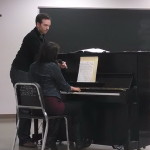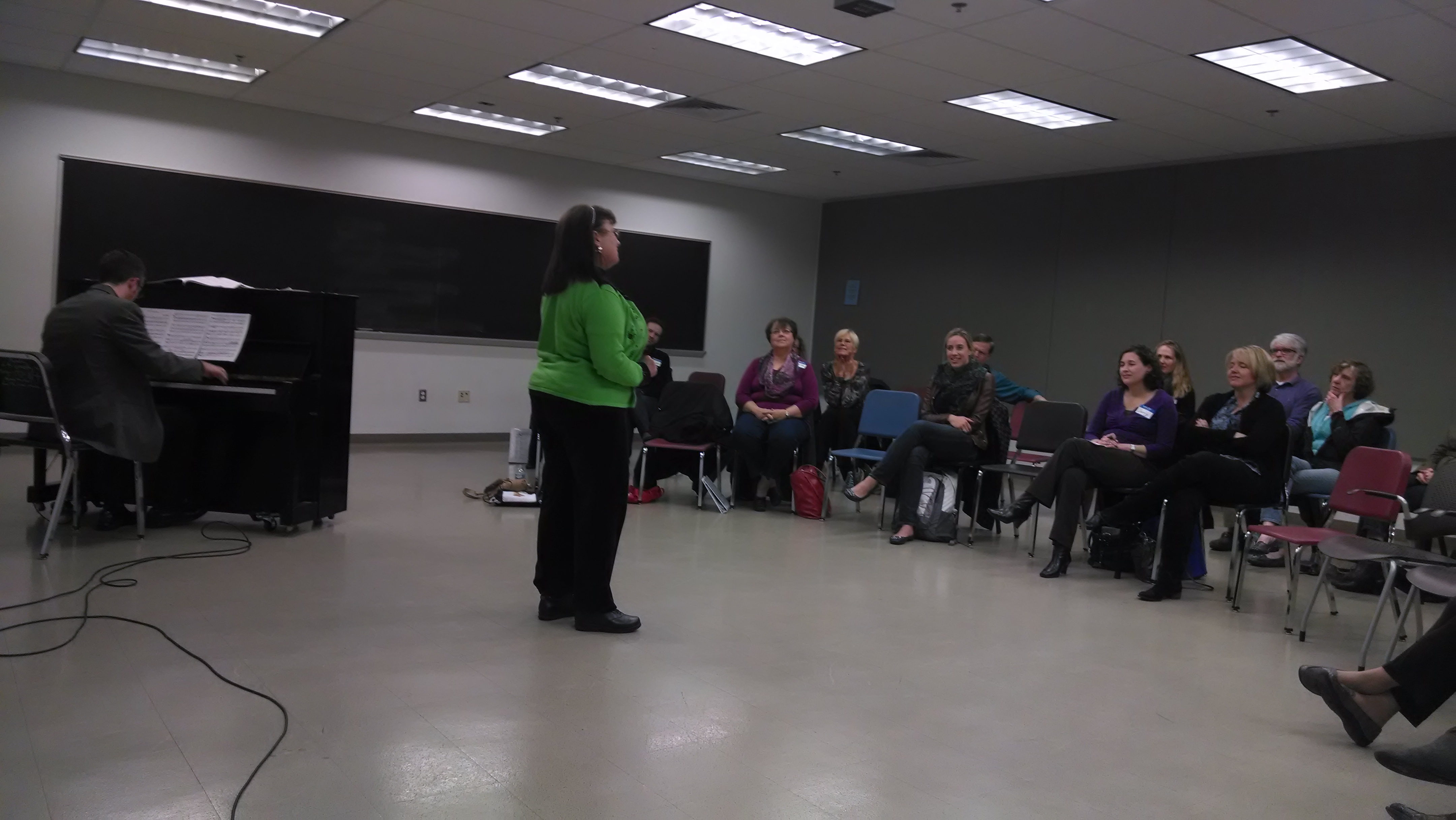If you are a good artist, you will serve the music. That means you will not only understand what the words mean, literally, you will understand what they mean to you. You will also understand how that meaning effects you, what it does to you emotionally and how that emotion (or state of mind) shows up through your face and body while you sing. You will allow the words, the music and the inner reality of both to flow through you as sound and as movement in order to express the personal truth of that piece, character or moment. If you have trouble doing this, you will not be successful as an artist, as singing is not about making sound alone, even if your sound is very impressive.
I have said before it is imperative not to be OK as a performer, or good. You need to be memorable, distinctive, unusual, unique, special, incomparable. THEN, you and your voice will also be unforgettable and will make a deep and lasting impression on your audiences. Some people have a lot of that quality naturally (bless them), but anyone can work on being special, as long as they are willing to put aside their ego in the process. That seems like a contradiction, but most truth in life is contradictory, in that two opposing things happen at the same time.
Ah, the famous ego!! We should not let it get in the way, or get too big, or get out of hand. Right. Except no one tells you what, specifically, an “Ego” (with a capital E) is. What’s the difference between being very self-confident and having a “big ego”? What’s the difference between being a leader and being “too self-absorbed”? This discussion can go on forever. No one really knows what an ego is, good or bad, except when they encounter a person they don’t like…….then it comes up.
I care about this issue. I don’t want to be considered an “ego-maniac” even though some people put that label on me. (She thinks she is the only person who knows anything.) Right. I am actually interested in getting away from that as behavior, but, may I assure you all, it’s easier said than done when you find yourself in a position of leadership that you did not ever consciously intend to have.
For me, “ego” is when your opinion and feelings (emotions) are more important that getting the job at hand done. If your feelings or considerations about yourself make you choose to do something that “makes you look good” or “gives you the respect you deserve” or “makes those other people look bad”, your choices will reflect that and cause trouble, not just for you but for all concerned. This is the opposite behavior of not thinking at all about others, about not paying attention to what you do because you don’t care about the job at hand other than getting it out of your way no matter how. That’s “ego”, too. It can also come up in the form of “I’m terrible at that”, “I can’t do those things”, “I will always fail” because that is negative “ego”. The issue is still about YOU and how you feel, and not about getting the job done.
Many of us spend our days wondering how we look to others. How do we measure up? How do others perceive us? What do others think of us? If we spend most of our time trying to please other people, we will end up in a big hole. On the other hand, if you never wonder about what others think of you, if you never wonder how you measure up to others, if you don’t care at all about others’ thoughts or feelings, you are in a hole there, too. It’s just a different hole. As with everything, you have to find a balance. Self-evaluation has to happen on a number of fronts, including measuring yourself against the expectations of society at large, against your own set of values, and against your goals for the future.
If you concentrate fully on a piece of music and work to sing it as well as you can, you will have to work through the technical issues, the musical challenges, the lyrics and their import, and your clear communication of the entire piece, and then be able to share it without any kind of mental filtering or distraction, moment by moment, as best you can. If you do that, then you can say you have done your honest best to “let go” of your ego. If you are confident you did not hold back or interfere with your communication, and someone tells you that your performance was just a big display of your own ego, that is the problem of the person who saw your performance, but it is not your problem. Others will judge you, no matter what, and their judgements don’t matter more than your own brutal self-honesty, provided you have brutal self-honesty!
“Just go out there and be yourself’,” people say. OK. How do I do that? What “self” am I? If you are doing your job as a vocalist, you are the self who is in the song, and only that self, while you sing. After the song (or show) is over, you go back to what you were before. Remember, however, that in the world people are flexible and no one is just one “self”, but many “selves” that change as we go through life’s experiences. That which remains is your behavior, your attitudes, and your way of interacting with the world. People notice and remember the overall quality of your energy as they watch you intereact with life.
There are no answers here, just things to think about. Breaking through your own Ego is a lifelong day-to-day task. All that’s necessary is that you engage the question, how can I break through my own Ego?

